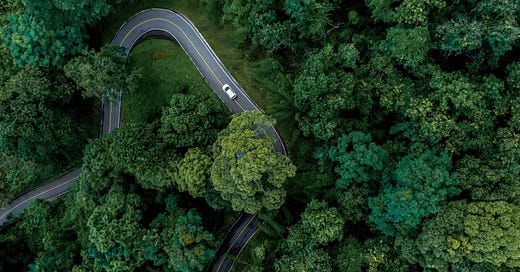Don’t just freeze tax duty, axe it entirely
Labour should scrap fuel duty and vehicle tax and switch to road charging.
Not many people were surprised by the Labour Government’s budget. Why would they have been? Every measure was trailed; every black hole was clearly signposted. And yet there was one small surprise: Rachel Reeves decided to continue the freeze on fuel duty which has been in place since 2011.
Fuel duty was frozen in 2011 at 57.95p by George Osborne in 2011 and is now 52.95p per litre after Rishi Sunak took off 5p as a temporary measure at the start of the cost-of-living crisis. This 2011 freeze and the 5p “temporary” cut costs the Exchequer £3 billion a year and it’s very popular – to the point where all those many Tory Chancellors recognised that reversing it would be political folly.
Former Harlow MP, Robert Halfon – the self-styled Motorists’ Champion - pled his cause through the pages of The Sun annually and loudly every year from 2011 onwards and was always successful. But with Halfon having retired from the Commons before this year’s election (and wisely too – the Tory vote in Harlow halved from 64% to 32% in July) and Labour winning a vast majority, it seems very odd that Chancellor Reeves didn’t end the freeze.
Explanations are few. In line with the one penny cut to beer prices, this continued freeze feels wholly performative and designed only to avoid a shellacking at the hands of The Sun Says who gave Reeves a kicking anyway. Surely a progressive government should not be afraid of Harry Cole and should be asking itself whether it’s time to unfreeze fuel duty? And, even better, there are good reasons for doing so.
First, much of the cost-of-living crisis has passed as the price of petrol has fallen in line with the price of oil. The average price of one litre of unleaded fuel in the UK in October 2024 was 136p versus 155p a year earlier.
Second, a grown-up government has got to get past gimmickry and make tougher choices. The 14-year Tory government made so many choices based on what the Telegraph, the Daily Mail or the Sun might say; surely a government with a vast majority and progressive parties to its Left to support it can show more bottom.
Third, this was a budget where the price of bus trips outside London was increased by 50% from £2 to £3. Given the choice, where should the money have gone?
Fourth, this is a government that wants the population to reduce its emissions and buy into the Electric Vehicle (EV) revolution.
So far, so New Statesman. I’ve almost convinced myself. But – surely - this is not what subscribers to Reaction pay for?
In fact, these are all good arguments to end the freeze in themselves but a government in an almost impregnable position needs to be a lot bolder and use that majority of theirs. They shouldn’t just freeze fuel duty; they should axe it. And while they are at it, they can axe car tax too. In the simplest possible terms, we need to move to a system that says that if you use the roads, you can pay for them. Why? Because this is good for people who use the roads more moderately: so it’s good for average families, it’s good for pensioners, it’s good for the environment, it’s good for public transport but, most of all, the switch is inevitable.
At the end of 2020, there were 200,000 EVs on UK roads; now there are 1.2 million which is roughly 3% of all cars. That’s a six times increase – albeit off a low base. Crucially, however, the momentum is only going one way. To date, in 2024, 18% of all new cars sold are electric. In September 2024, the figure was 20% of all new cars. That number increases to 30% if you include plug-in hybrids.
These cars currently pay no fuel duty and no car tax – although that is going to change, at very low levels, in the 2025-26 tax year. (A zero emissions car will pay £10 of car tax until 2029-30). There are a host of other tax benefits that owners of EVs, both personal and company, benefit from and good luck to them. They have been wise enough to benefit from major government stimulus by getting in at the beginning of the EV revolution - but it can’t last.
Like the wider tax system, if we carry on as we are, we’re going to end up with an unsustainable burden on an ever-decreasing number of taxpayers and it’s not as if EV owners can pay fuel duty or congestion charges. But they still use the roads that their petrol-run brethren use and while the playing field should not be levelled completely, it does need adjusting. Charging to use our roads will do the job. A pothole is a pothole after all.





